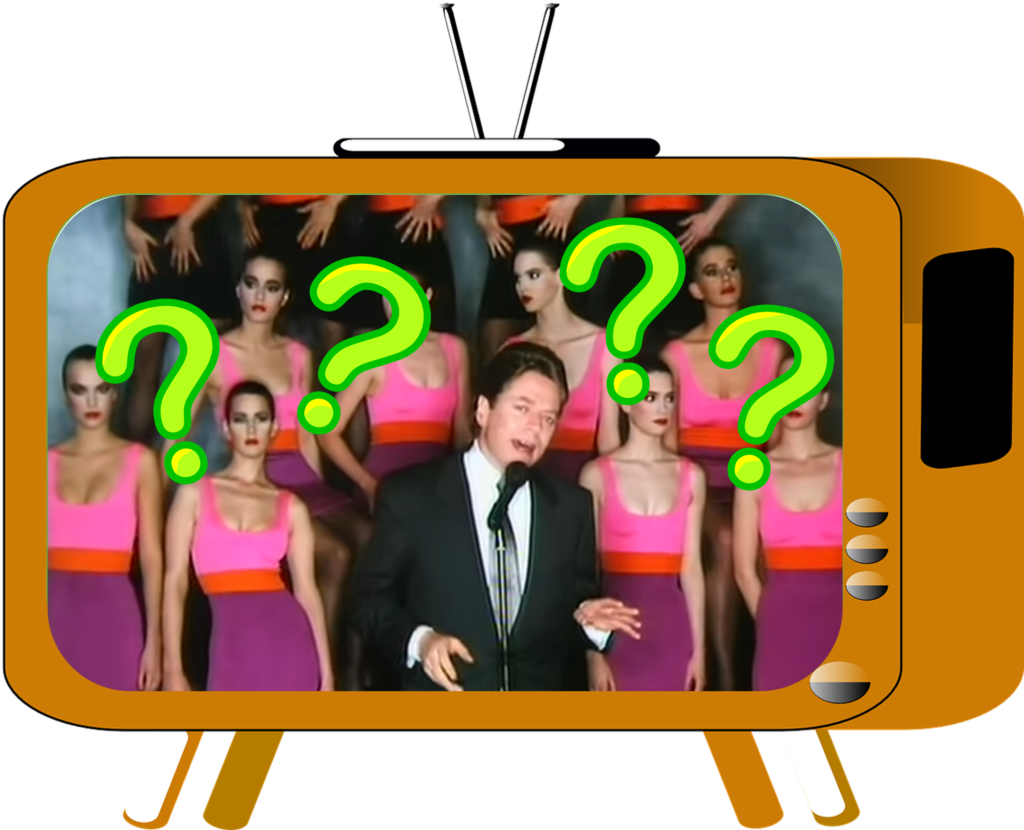
We are on the precipice of the NFL Draft later this month. But since that Lombardi Trophy was handed to the Philadelphia Eagles at Super Bowl LIX in early February, speculation about which players will be selected by which teams has run rampant in the weeks since. Sports Radio, in particular, fans these flames because it get fans engaged and it’s good for ratings even though the actual NFL season is months away.
We love to predict and prognosticate. And that’s the topic of today’s #TBT from a mere three years ago. Back then, the draft had just taken place. That year, the still-lowly Jacksonville Jaguars got the first pick while my no-longer-lowly Detroit Lions had selection #2. Let’s just say it worked out well for the Lions, less well for the Jags. But back then, who knew?
In case you hadn’t noticed, we’ve learned that hard lesson over the past nine days by trying to predict the stock market. And we saw the impossible challenge it is to try to out-guess the president when it comes to the markets. Simply unpredictable.
It’s the key reason why this grizzled radio vet has shied away from making radio predictions about what will work and what will bomb. I’ve been doing this long enough to know that you never know. So, join me on what promises to be an unpredictable ride into the recent past. – FJ
April 2022
Congratulations to the Jacksonville Jaguars. In the NFL Draft that started last night, they made their long-awaited top pick, choosing highly-regarded Georgia defensive end Travon Walker.
(My Detroit Lions selected next, ending up with the player they likely wanted anyway, hometown hero Aidan Hutchinson from Michigan.)
Will the Jags look back at this apogee moment as a turning point in their franchise’s trajectory? Probably not.
In a great column in The New York Times earlier this week, David Leonhardt reminds us of “The power of humility.” That is, despite all the data, conjecture, and punditry, teams often get it wrong.
The classic case everyone points to, of course, is Tom Brady, the 199th pick of the 2000 NFL Draft. Brady was passed over by every NFL team—several times. And he’s only the G.O.A.T.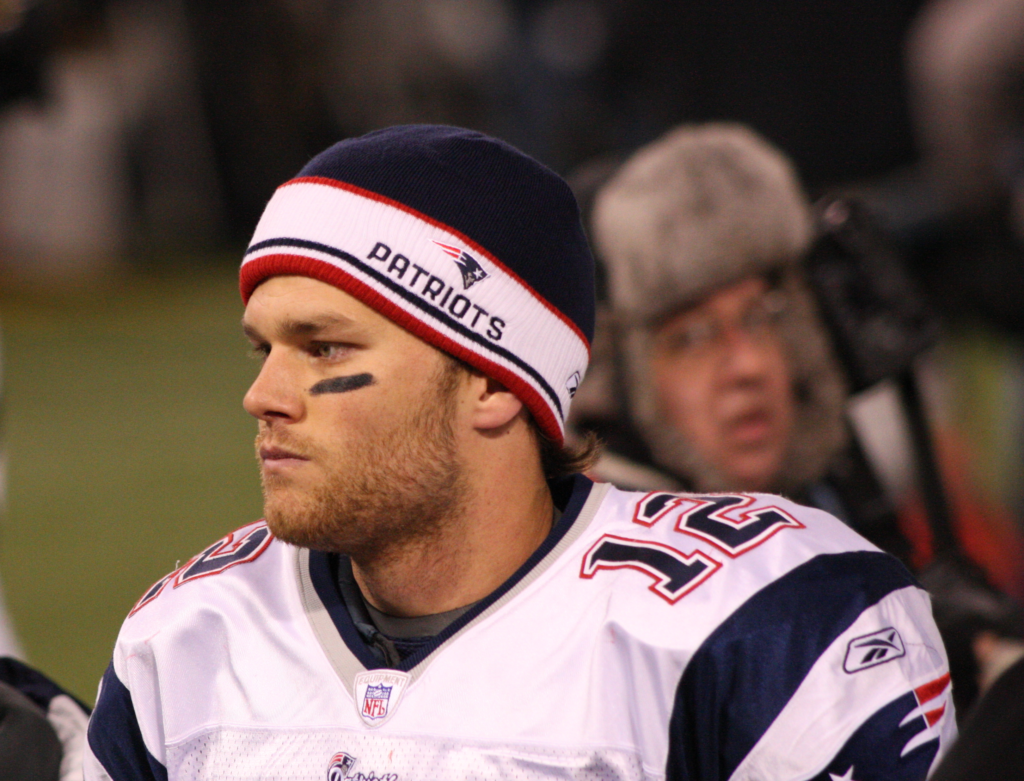
On the other hand, many can’t miss draftees have…well, missed. In case after case, badly. Some teams—hey, those are my Lions—have botched first round picks so often, they’ve earned a well-deserved reputation for blowing it.
Just like we employers do when it’s time to hire that morning show or sales manager or digital director.
Leonhardt blames the tendency to get it wrong, despite our confidence we know full well what we’re doing, as good old hubris—better known as excessive pride. Or in Greek tragedy, “defiance of the gods.”
We do it in radio all the time.
We just know what new formats, stations, songs, and shows will be hits and which will be stiffs. Until we don’t.
How many of us truly get it right before Nielsen delivers the news? It is only in retrospect that we attempt to explain what happened.
Those guys must be doing stealth marketing.
There were blizzards that week which always helps them.
I heard they did a music test.
Their morning show has been sounding good.
They always have a great spring book.
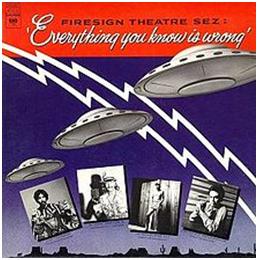 As Leonhardt reminds, “Predicting performance is unavoidably hard.”
As Leonhardt reminds, “Predicting performance is unavoidably hard.”
If you watch CNBC, that’s an ongoing theme. As a viewer you often feel stupid, having missed an obvious trend—Tesla getting killed, Apple skyrocketing, or real estate hitting a bubble.
Of course, we all knew that. Until we didn’t.
To some extent, that’s been the story of the last two years of COVID. Leonhart points to hubris as the reason that despite health experts and their data, truth continued to shift and change, often by the day.
Like so many of us, they tried to make sense out of spikes and plateaus, often getting it horribly wrong. Of course, most of the politicians who took matters in their own hands didn’t get it so right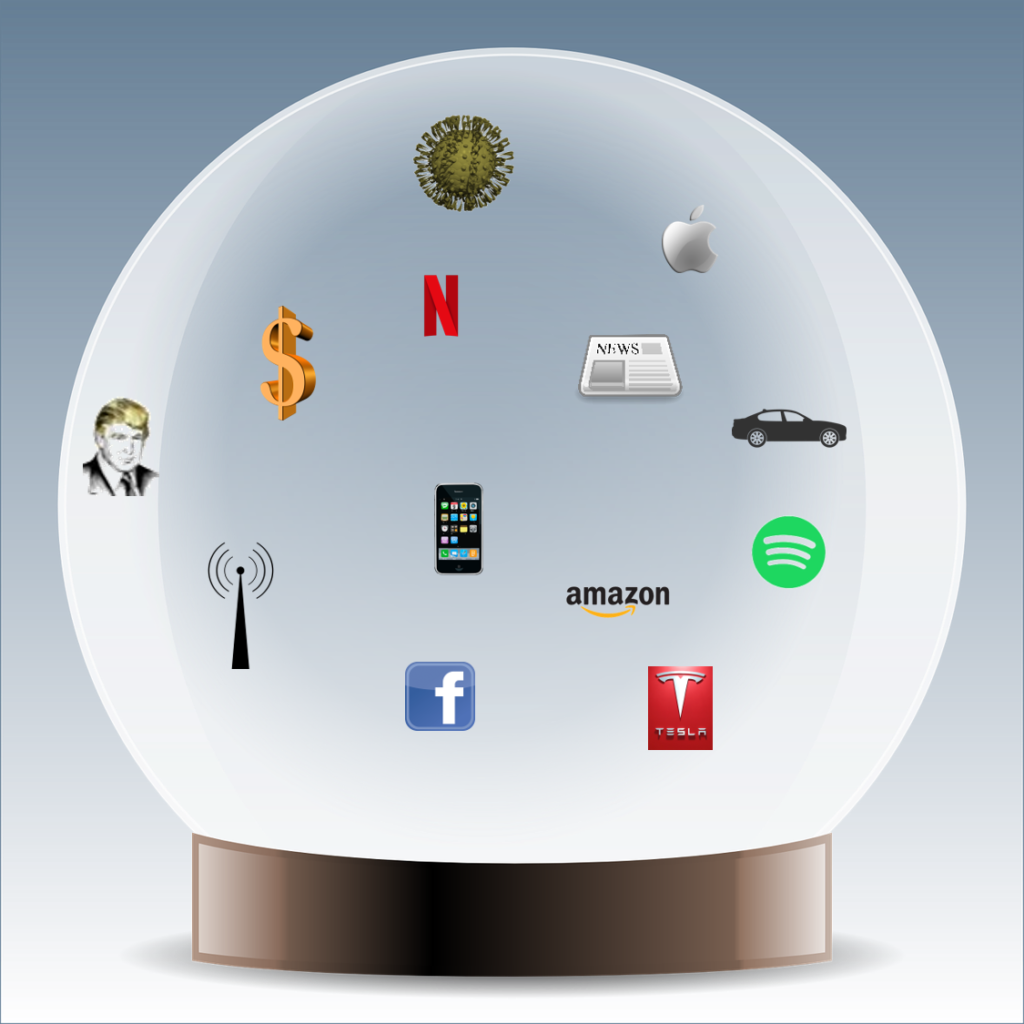 either.
either.
You’ll be happy to know that I got it right…er, wrong back on March 6, 2020—just before all hell officially broke loose with COVID. The post, “What’s your prediction about radio?” used a story about Amazon working on an algorithm designed to predict the future. (Ha ha.)
Looking back I correctly nailed the truth that none of the experts—or any of us for that matter—had an inkling of what was going on and what was to transpire. The last 26 months prove it beyond a shadow of a doubt. I used the crystal ball illustration to make my point. It holds up just fine today.
At the time, I quoted one of my all-time favorite authors, William Goldman:
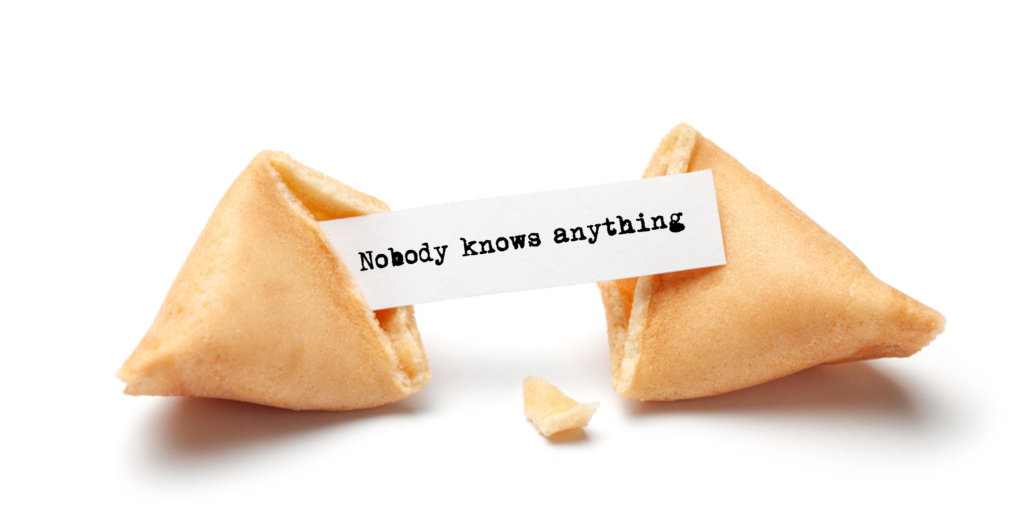 “Nobody knows anything.”
“Nobody knows anything.”
Columnist Leonhardt suggests even Goldman doesn’t have it exactly right. Scouts, recruiters, and statisticians have insights that are often useful. And sometimes, they actually get it right.
Maybe, just maybe, the Jags and the Lions will look back on yesterday and smile. But it’s just as likely they won’t.
The problem comes when our hubris takes over, causing us to be too confident in our abilities to see what’s coming, whether we’re the CEO, the PD, a consultant, or (gulp!) a futurist.
Here’s the way I concluded that blog post on the cusp of the pandemic, the lockdowns, and the tragedy that played out:
“We can’t predict the future. No one can.
But we can control the controllables.
Be of service to your audience, the people you manage, and the people who manage you.
Know your purpose, stay in your lane, do your job, serve your community.
I wish Amazon all the luck in the world on the development of their prediction algorithm.
Want to know my prediction?
All bets are off.
We will get through this, but there will be winners and losers.
There are stories that will be written about this year. These times. This situation.
Let’s write the next chapter of our radio story in 2020.”
See, I was right.
Er…wrong.
Special thanks to perhaps the smartest guy I ever got to work with, Tom Bender, for sending me this story. – FJ
- The Rock Hall’s Most Egregious Snub Yet? - May 16, 2025
- Attention Tech And Entertainment Writers: Don’t Mess With Radio! - May 15, 2025
- 3 Socio-Economic Shifts Every Radio Programmer And Seller Should Be Aware Of - May 14, 2025





Leave a Reply